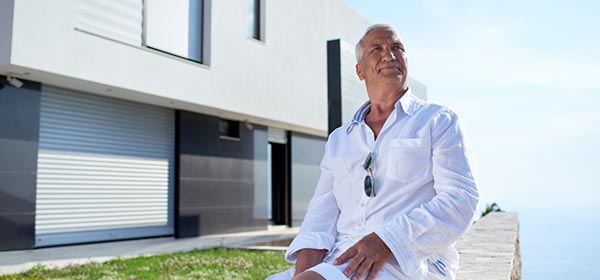How to live longer has become a hot topic in ageing societies around the world, with TV shows, books and lifestyle gurus all urging us to take up Zumba, eat blueberries and embrace a more spiritual approach to our day-to-day lives. But most of this advice is founded on a fundamental lie – that we all have an equal chance of making it to 80 or 90. The sad fact is the rich do – but the poor do not.
A wide-ranging and multidisciplinary research program in the UK, the New Dynamics of Ageing, concluded that there is a handful of key determinants for longer life. As summarised by research director Professor Alan Walker, “… ageing is inevitable, [but] it is also plastic … [it is] governed by a complex set of processes in which genes interact with environmental risk factors which, in various ways, inflict damage on the body’s cells and metabolism … this damage causes the impaired functioning that is biological ageing.”
According to Professor Walker genes only play a minor role (20 per cent) in the ageing process, so the environmental risk factors dominate. These factors include:
- smoking
- poor diet
- lack of physical exercise
- poverty and deprivation
- stress
- arduous employment.
Professor Walker maintains that these risk factors sit behind all chronic conditions associated with old age: coronary heart disease, stroke, type 2 diabetes and common cancers. To put it simply, the exposure to the environmental risk factors are based upon your income, social class and occupation. So this means that those in professional and managerial ranks will live four (males) to six (females) years longer and have a far better healthy life expectancy of 11.5 years for females and 13 years for males.
Yet this strongly predictive fact of ageing and longer life expectancy is rarely recognised, let alone debated. Instead we drown in a plethora of information which encourages us to improve our longevity as though our own choices and actions are the only factors which matter. They are not – our socio-economic status has already shaped our future prospects to a large degree. With a handful of exceptions, those who experience life course disadvantage will simply not live as long as those who do not. Think of the Queen Mother as an extreme example of how privilege can lead to a very long life.
So what can you do? As Professor Walker notes, there are two levels of action. Firstly, that austerity politics do not offer a ‘whole of population’ improvement in ageing and longevity – what is needed, but unlikely to be supported, is a substantial reduction in inequality and the eradication of poverty. As governments around the world wrestle with mounting debts, this is highly unlikely. More specifically, he calls for a massive injection of funds into a public health drive that encourages people to change the factors that they can still influence. Such a program would see:
- calorie restriction to prevent or delay chronic diseases including cancer
- aerobic exercise to improve cardiovascular systems and reduce incidence of stroke and type 2 diabetes, also to improve cognitive function
- mental stimulation to improve brain function
- sleep, meditation and mindfulness programs
- reductions in air pollution.
So now you know where you stand. Your socio-economic status will have the strongest impact upon your chances of a long and healthy life. The die is cast. But there are things you can still do to enhance your longevity – exercise, restrained eating, mental stimulation and mindfulness – which will help make the most of your prospects by reducing environmental risk factors. This, at least, is up to you.
Read more at The Guardian
Related articles:
Your lifestyle is the secret to longevity
How long will you live?
Will your retirement savings last?

